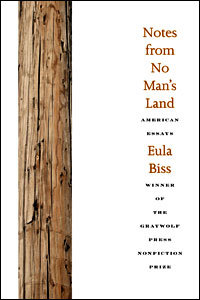This is easily the best essay collection I’ve read this year. I had previously encountered Biss reading Volume 1 of Best Creative Nonfiction, as well as on the wonderful podcast Book Fight, which I have recommended before and plan to again. Her work always stood out to me, but there’s a lot of good writing out there, and it took me a while to get to her. The project of reading fifty female authors this year probably expiated that, and I’m glad.
These essays deal with identity, specifically the search for identity in race and nationality. Biss, who is white, has grown up with black family members, and has developed a nuanced and piercing sense of racial examination. Whether she is pondering her time as a teacher in Harlem, examining her own role in the gentrification of a mixed Chicago neighborhood, or feeling shame at her American identity in a Mexican border town, she cuts through the obfuscatious bullshit and forces both herself and her readers to face some profoundly unpleasant truths.
While this description may sound like some unpleasantly sanctimonious lefty academic hand-wringing, the only thing it has in common with that unfortunate genre of academic writing is its subject. In the title essay, Biss talks about the history of lynching in America within the context of the invention of the telephone and the implementation of the ubiquitous poles that made phone lines possible, and their inevitable incorporation into the systemic terrorizing and murder of black men. It’s a masterful piece of writing that is simultaneously approachable enough for me to teach it to my 8th grade class (most of who read at least a few grades levels below 8th grade) and dense enough to not only stand up to a half-dozen readings, but to thrive under that degree of scrutiny, offering greater nuance and detail.
Recommendation: Buy this book. If you are undecided, read the essay mentioned above (link below).
http://www.npr.org/templates/story/story.php?storyId=102235226#102237046
